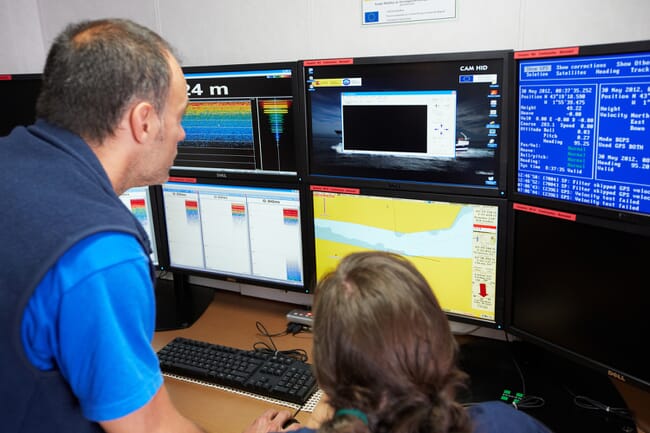
© AZTI
A team of researchers from the Spain-based research centre AZTI have developed an automatic classification model that can identify the main pelagic fish species in the Bay of Biscay, such as anchovy, sardine, and Atlantic mackerel, based on their schooling behaviour. The classification of fish schools detected by acoustic echosounders represents a crucial advancement for managing pelagic species found in highly diverse ecosystems and enables the study of specific behavioural changes in the presence of other species.
The model, which uses fully and partially labelled schools to provide the likelihood of a given school belonging to a particular study species, has so far given promising results and may hold great potential for the management of important fisheries. The results of the model, recently published in the ICES Journal of Marine Science, showed a 63.5 percent accuracy in identifying labelled schools, and an 80 percent accuracy rate considering both labelled and unlabelled schools.
This is not the first time that the emerging technology of AI has been applied alongside acoustic data from sonars and echo sounders on fishing vessels, and this approach seems to provide an increasingly effective strategy to enhance fisheries management. Automatically discriminating schools, in addition to reducing the data processing time in scientific surveys, can increase the accuracy of the data uses for the assessment of the annual pelagic species distribution and abundance. Furthermore, automatic school classification can potentially increase fisheries efficiency and sustainability by significantly reducing the by-catch.
“Automating species identification not only reduces data processing times for scientific surveys but also provides new opportunities to study the schooling behaviour and develop new technologies for increasing the efficiency and sustainability of the fishing industry,” said Aitor Lekanda, a PhD researcher at AZTI, in a press release.




